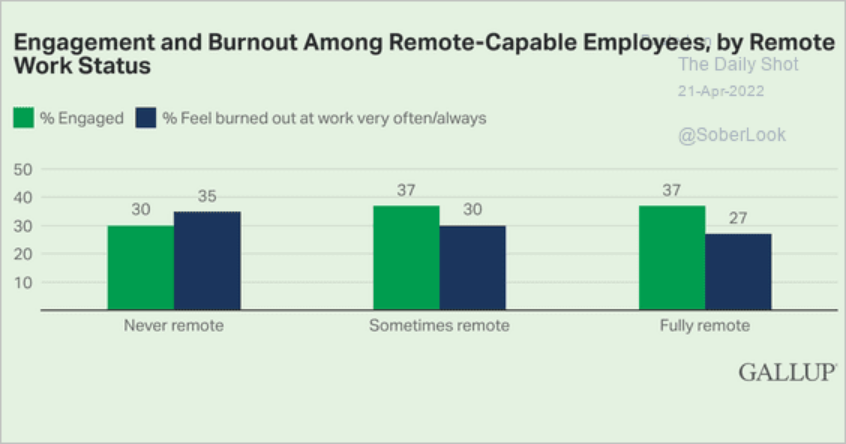April 21, 2022
Macron: terrible, but not a fascist
- The vote situation in France is untenable.
- The only hope is for the left to be strong enough to stop the worst policies from becoming law.
Opinion polls suggest Macron will narrowly win the second-round vote on Sunday, although the most recent surveys show his lead increasing slightly. A Harris Interactive poll published on Wednesday gave him 54 per cent of voting intentions, an eight-point lead over Le Pen’s 46 per cent.
Anti-worker safety at Amazon
- So many workers at Amazon are being injured that the company has tried to move to a state and non-profit supported charity model.
- Model covers 1000 of its injured workers.
Amazon plans to expand a scheme to send injured US warehouse staff to non-profit groups, such as homeless shelters, kitchens and charity shops, in what workers’ rights advocates argue is an effort to mask a safety crisis at the company.
Workers involved in the Amazon Community Together scheme are considered to be on “light duty” and remain on full pay. Staff have been sent to groups such as the Salvation Army, Habitat for Humanity and the homelessness charity Help of Southern Nevada.
However, the effort also allows the $1.6tn company to reduce its Lost Time Incident Rate (LTIR)
- Workers’ rights groups and lawyers representing injured workers counter that the creation of light duty roles serves to massage statistics to make it appear fewer severe injuries are occurring at Amazon.
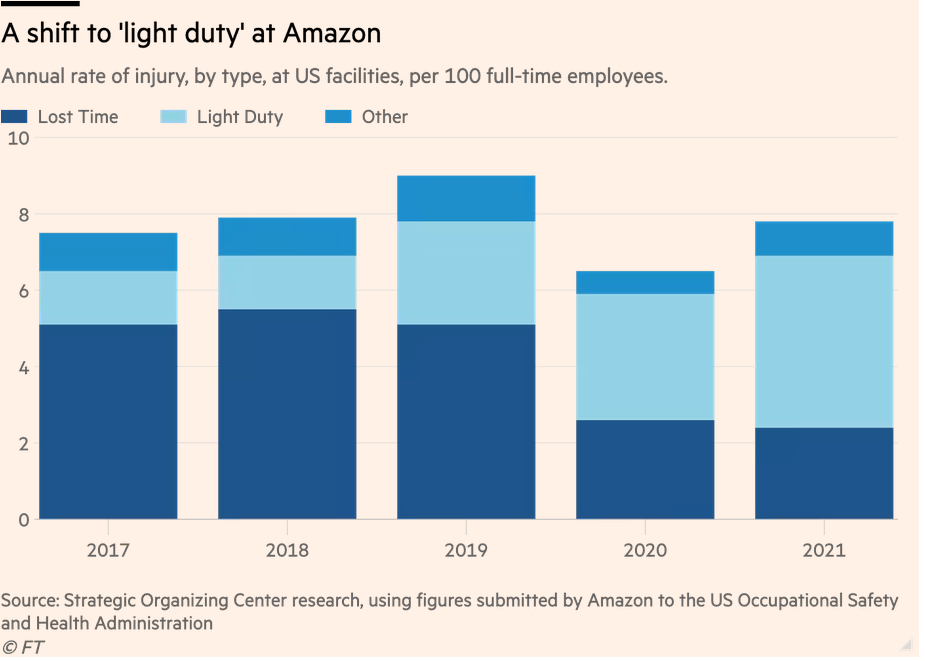
Job transition to "green intensive" jobs à la IMF/World Bank New-New World Order
- Their message to governments around green transition: Don't worry, and let the market decide.
- Also: job training, tax credits for lower-income workers, green infrastructure and R&D investment push, and a carbon tax.
- The belief is that the labour market will follow the dreamed future where capital transitions (with a nudge from carbon taxes) towards a techno-Utopia.
- It is light market supports for workers, but nothing else.
That's right, no new ideas and a bunch of old failed ideas in the transition to a "green economy". The new information is that the IMF is absolutely positive that it is a very small number of "jobs" that need to be moved to new "green intensive" industries from "pollution-intensive" industries.
Only, say 1% of net jobs. Sure, they admit are the hardest jobs to move because they are essential to those communities they are in, but the IMF is sure that these workers (read: jobs) will move to more urban, higher wage areas – like the North East of the USA.
The only problem is that jobs do not move on their own, investment moves jobs. So, if we keep investing in "pollution-intensive" industries and not "green intensive" industries, then it is all just nonsense.
- Tax credits, retraining, and a carbon tax are not going provide a just transition for workers.
For the representative advanced economy, we estimate that the policy package generates a labor reallocation to greener industries of about 1 percent over 10 years. It also increases total employment by 0.5 percent and boosts after-tax income for lower-skilled workers, reducing inequality.
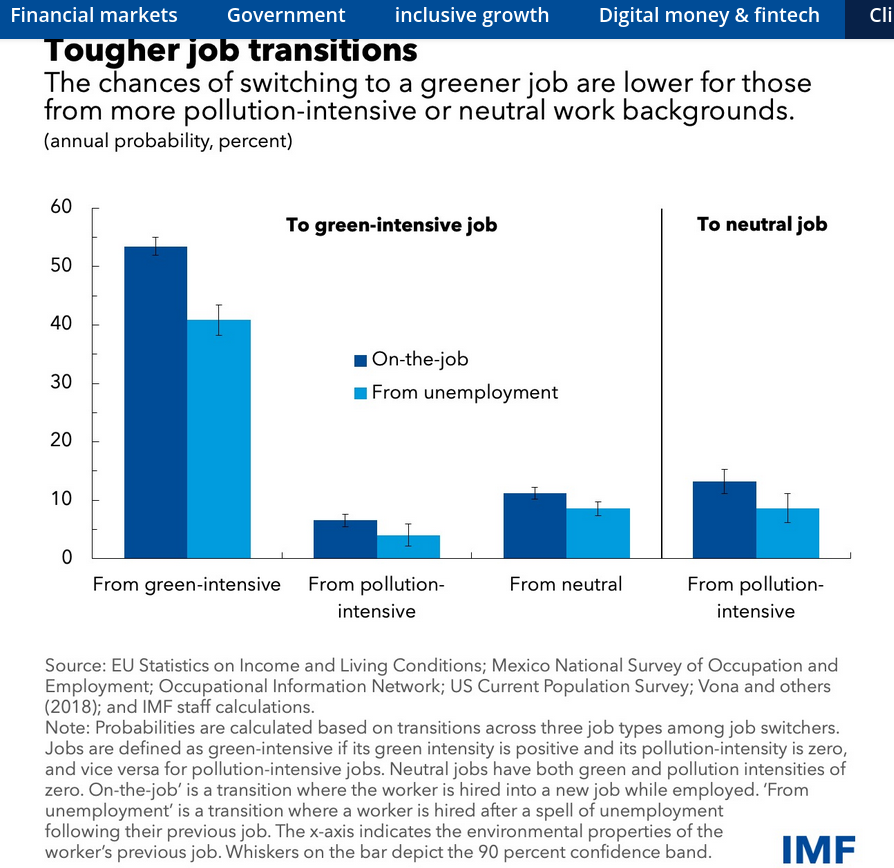
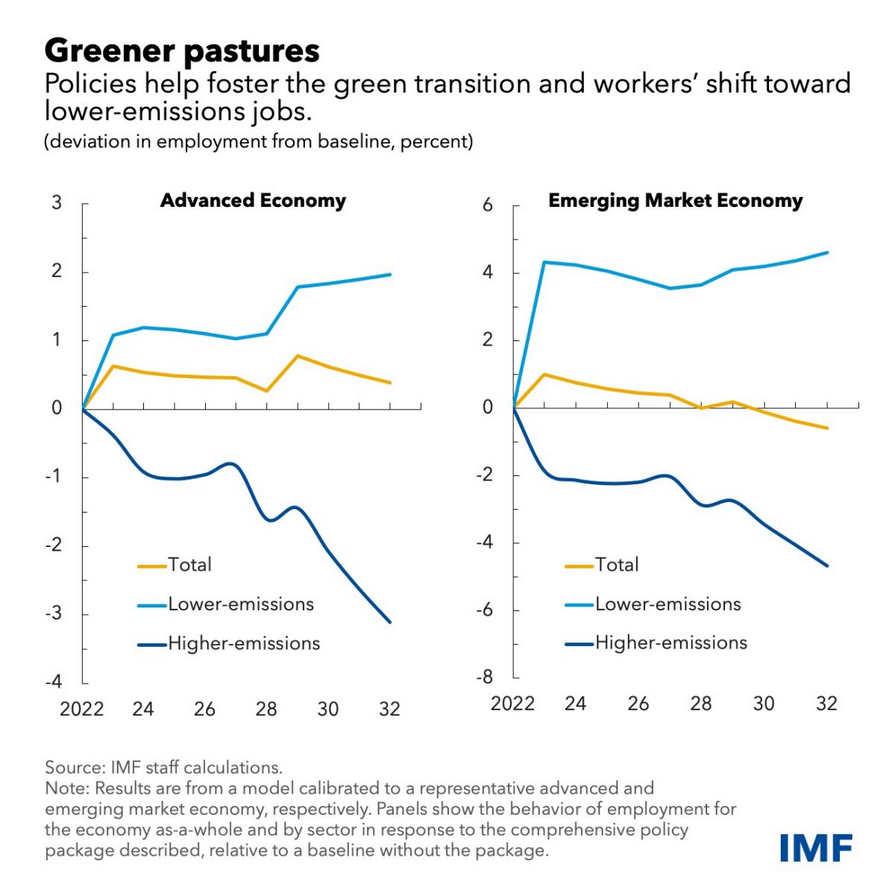
IMF/World Bank economic predictions
- They are not saying "recession", but it sure sounds like they are suggesting it:
- Lots of debt, prepare for rounds of bankruptcies as zombie companies go under.
- Low income countries are in for a world of hurt.
- "About 60% of low-income countries are at high risk of debt distress or have already entered that state"
- "Food inflation is particularly dangerous in poor countries, including in sub-Saharan Africa, where households are spending up to 60% of their budgets on food, compared with just 10% in advanced economies, according to the IMF"
As Bloomberg News writes:
The IMF is not mincing words. In recent days, as it has downgraded growth forecasts, it has warned of “seismic waves” washing over the global economy and pointed to the possible return of the “doom loop” between sovereign debt and the local banks in developing economies holding a record amount of it.
Neither is the World Bank. It has announced the creation of a $170 billion fund – a pile bigger than it deployed to fight Covid – to help fragile economies weather the months ahead.
Bank of Korea Governor Rhee Chang-yong highlighted rapidly rising private and public debt and an aging population as threats to South Korea’s economic outlook
Ukraine rebuilding will be liberalization on steroids
- the EU's CEPR has put forward a plan to rebuild Ukraine.
- It should not surprise anyone that it is built around the idea of liberal Utopia supposedly reached under the Marshall Plan for rebuilding Germany after WW2.
- The blueprint puts reconstruction costs at €200bn-€500bn. To be paid for by the EU, but with EU companies benefiting.
Basically, it is:
… six principles. First, prepare Ukraine to qualify for EU membership. Second, manage reconstruction funds and planning through a new EU-sponsored body. Third, leave sufficient control in Ukraine’s hands. Fourth, encourage inflows of both foreign capital and technology. Fifth, use grants rather than loans. And sixth, “build back better” — align reconstruction with a zero-carbon economy.
Sound familiar?
The first principle is key: use reconstruction to make Ukraine fit for EU membership. From now on infrastructure must “weave Ukraine into the EU common market”, the blueprint states. One example is to (re)build rail lines using the EU-standard gauge. Another is the unsung victory of how Ukrainian and EU electricity operators connected the two power grids on March 16, at record speed in the middle of war.
Some graphs
- US Core CPI is falling…
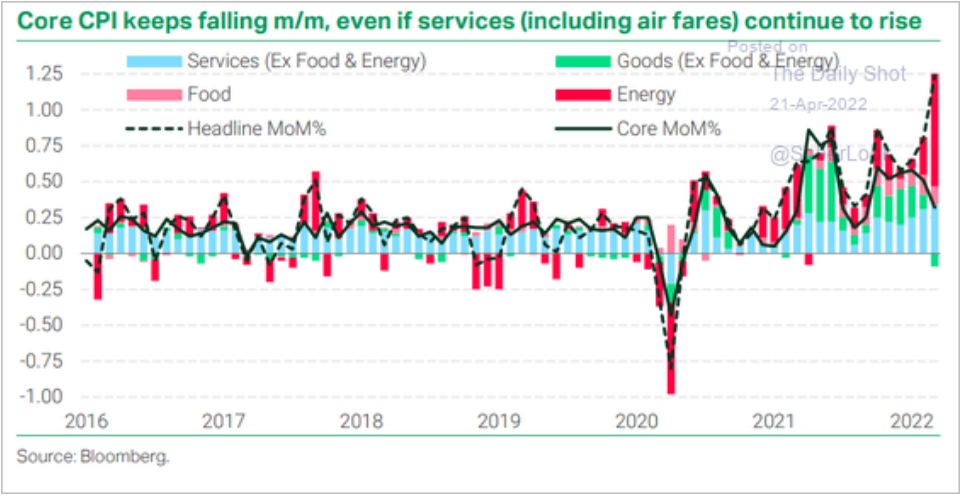
- Strategic Petroleum Reserve is propping up profits (and keeping gas at the pump from rising very fast), but is running out of steam
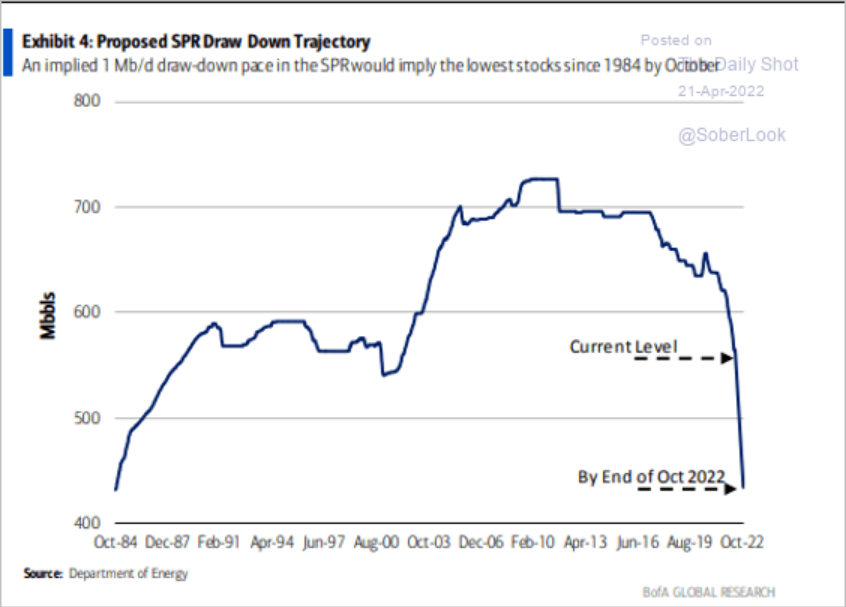
- Commercial drone companies doing well
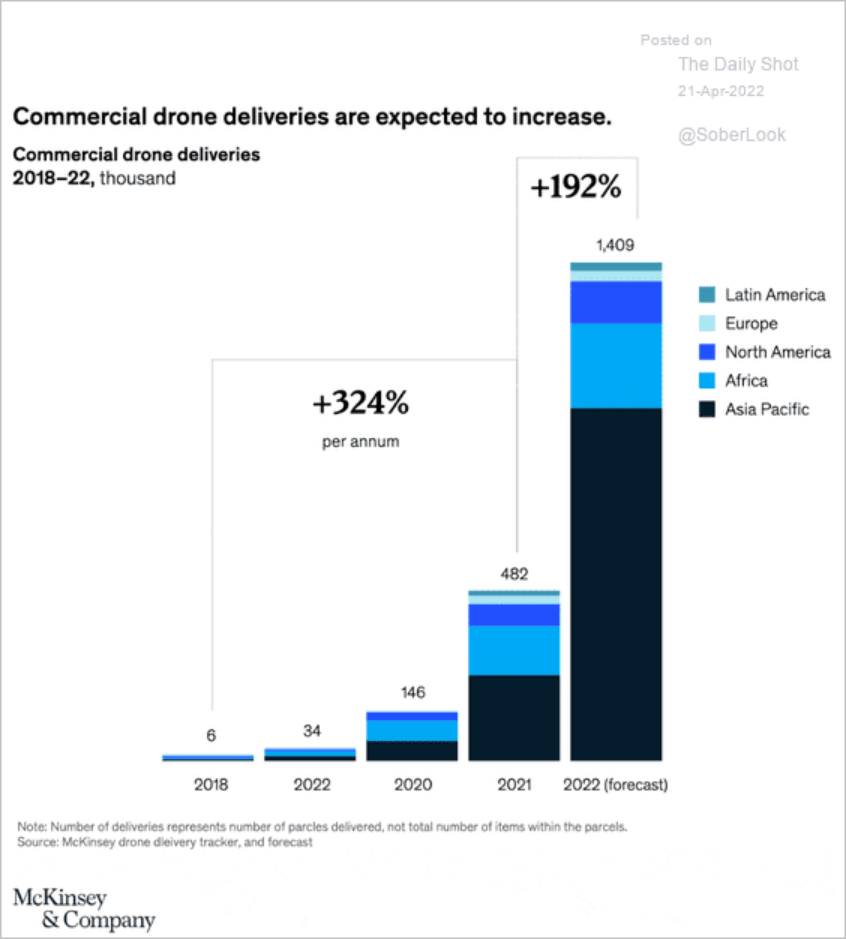
- Remote work is better for you. Don't let your manager tell you otherwise
